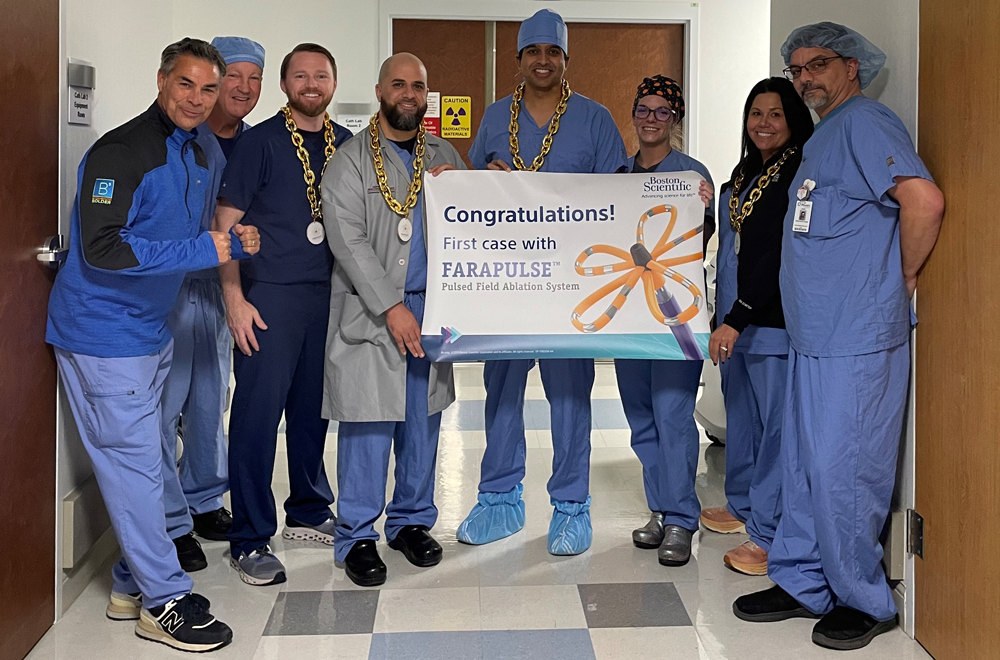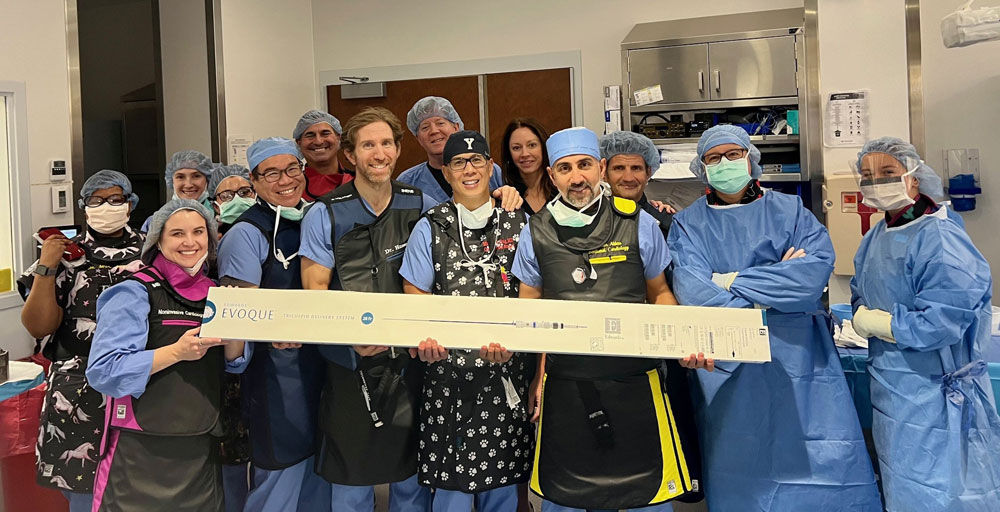

Less-invasive, better results
TCAR procedure debuts at Community Healthcare System
A less-invasive approach for treating carotid artery disease is lowering patients’ risk of stroke while reducing recovery times and their postoperative hospital stay.
The procedure – called Transcarotid Artery Revascularization (TCAR) – is a hybrid. It combines traditional surgical treatment, which has been around since the 1950s, and carotid stenting, which emerged about 20 years ago, said Interventional Cardiologist Anas Safadi, MD, who is affiliated with Community Healthcare System.
“With surgery, the surgeon makes a 3- to 4-inch incision down the patient’s neck, enters the carotid artery, cleans out the plaque and closes the incision,” Safadi explained. “With carotid stenting, a puncture is made at the groin, and catheters and wires are run up to the carotid artery, and a stent is put in place.
“With TCAR, we place a stent, but we do not have to traverse all that anatomy to get to the carotid artery,” he said. “With the help of a surgeon, we directly puncture the carotid artery and deliver the stent using a technology called flow reversal, where we stop the blood flow into the carotid while we deliver the stent.”
Safadi was part of the team that performed the first TCAR procedure at St. Mary Medical Center, which was in October 2022.
Among the first to benefit from TCAR was 79-year-old Hobart resident David Tripp. He suffered a minor stroke in July 2021 and a second stroke in June 2022. Safadi determined Tripp would be a good candidate for TCAR.
“They told me all the risks, and I chose to go forward with it,” Tripp said. “I was a little hesitant about TCAR because the procedure was so new, but I trust Dr. Safadi.”
In October 2022, he underwent the TCAR procedure on a carotid artery that was 38 percent blocked. Just before Christmas, he underwent the more traditional surgical procedure to repair the carotid artery on the other side, which was 100 percent blocked.
His wife, Patty Tripp, said that two days after TCAR, David had a burst of energy.
“He was more lively,” she said. “He felt good, and he was walking around the house. It was as though somebody opened a door and let David come out.”
David Tripp said that every patient is different and needs to decide what is right for their own situation, but he would encourage other patients considering TCAR to have it done.
“It is going to change your life,” his wife added.
To determine whether a patient is a good candidate for TCAR, a team of doctors reviews each case.
“We consider risk factors and their anatomy when deciding whether TCAR is a good option,” Safadi said.
Compared to traditional surgery, TCAR offers a smaller incision, lower risk of in-procedure heart attack, less risk of nerve damage, shorter surgery and shorter hospital stay.
“TCAR involves a 1-inch incision at the base of the neck, at the clavicle,” Safadi said. “It is very different than recovering from a 3- or 4-inch incision down the neckline. TCAR has a faster and easier recovery. There are even some centers that do the procedure with local and moderate sedation, reducing the risk of anesthesia to patients.”
The majority of patients go home the next morning.
“They take it easy for a few days, but in about a week’s time, they’re back to normal with minimal long-term side effects or problems,” Safadi said.
Without any medical intervention, carotid stenosis – which is the narrowing of the arteries in the neck that supply the vast majority of blood supply to the brain – increases the risk of stroke.
For David Tripp, TCAR gave him one fewer health issue to worry about. Tripp is a retired fire captain who spent 34 years on the Gary Fire Department and has a complex medical history that includes elbow surgeries, knee replacement, hip replacement and various injuries. On one call, he even had a brick wall collapse on him.
“I don’t do anything easy,” he joked.
Tripp’s recovery from TCAR has been relatively smooth.
“The doctors said to go home and relax and keep an eye on the incisions,” Patty Tripp said. “He healed up with no problem at all. We were very fortunate.”


